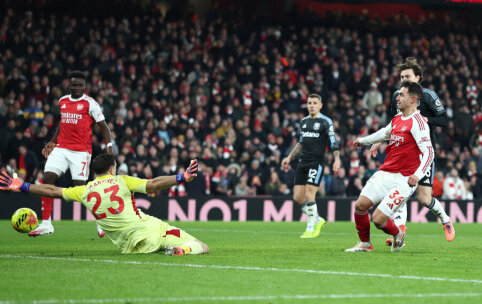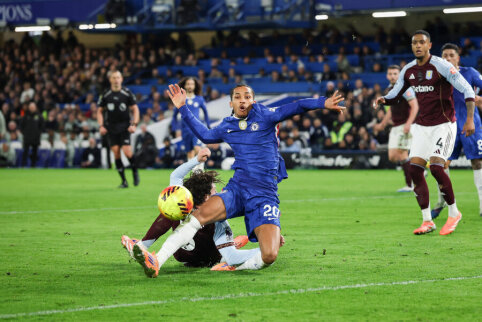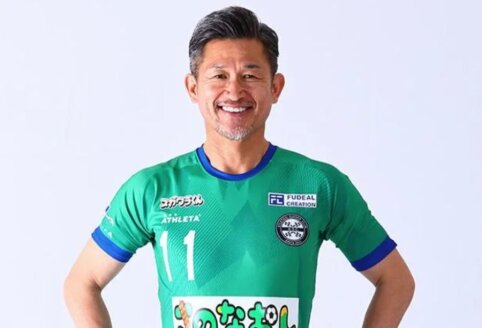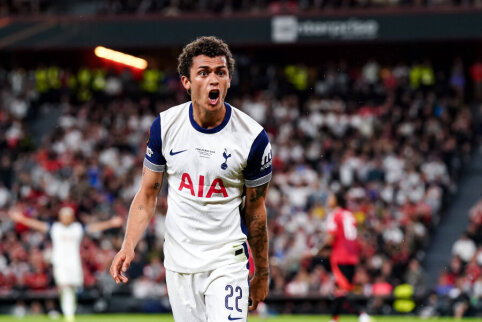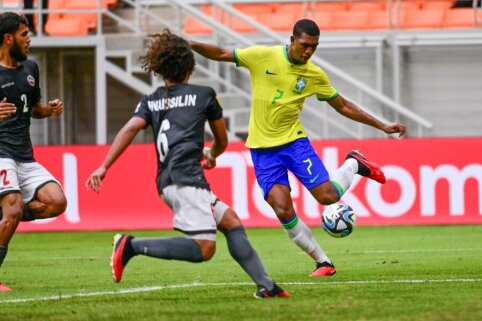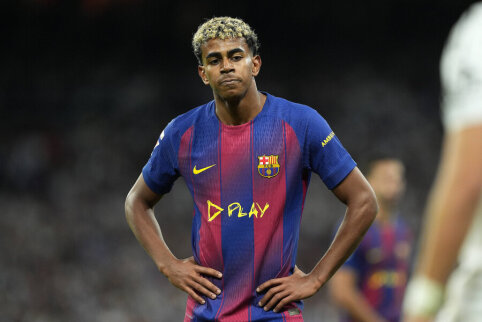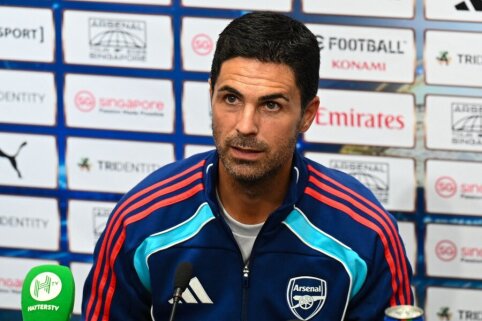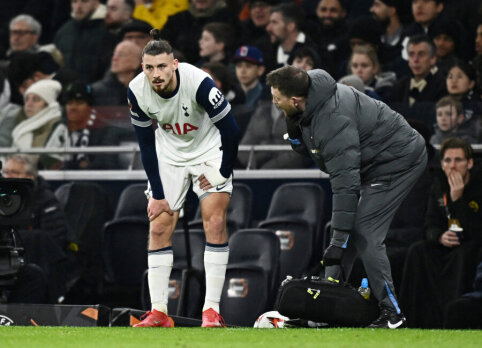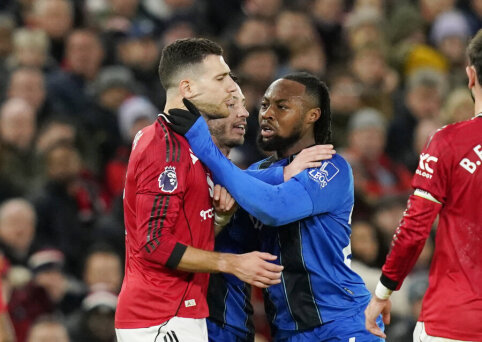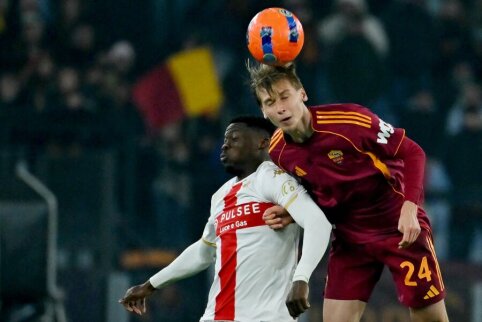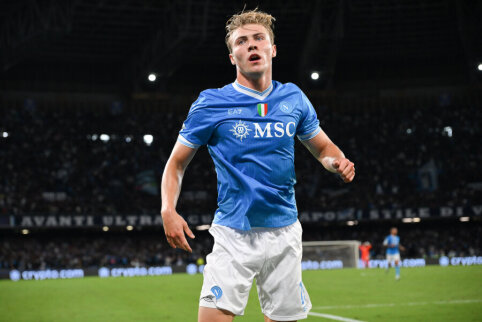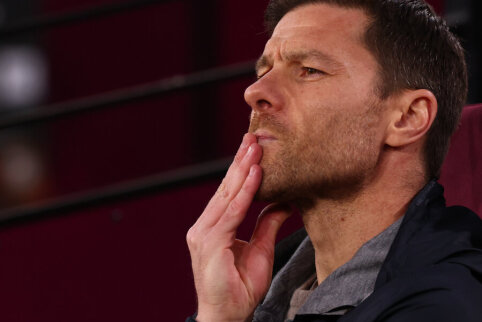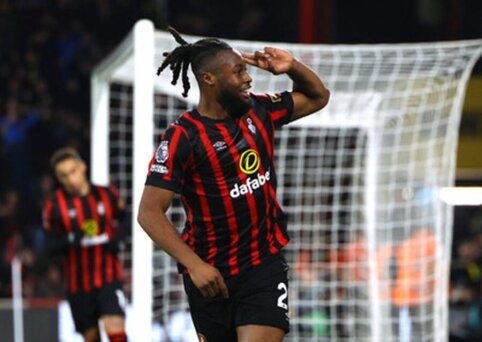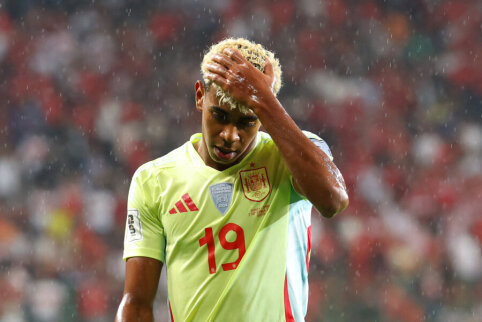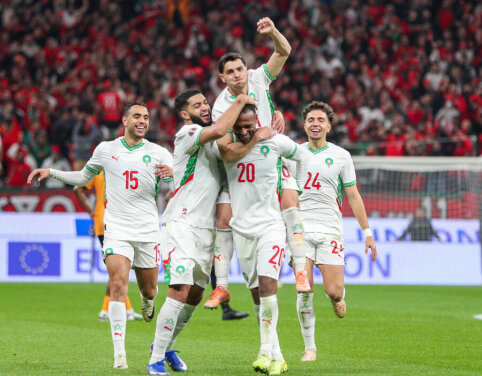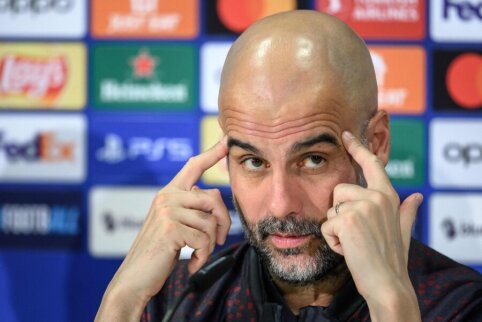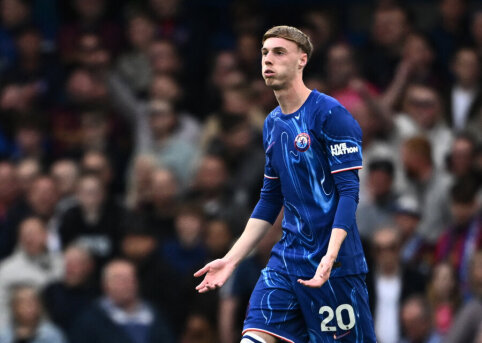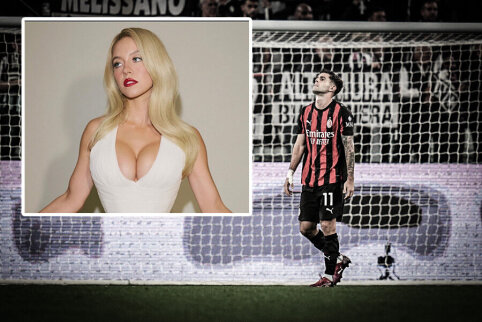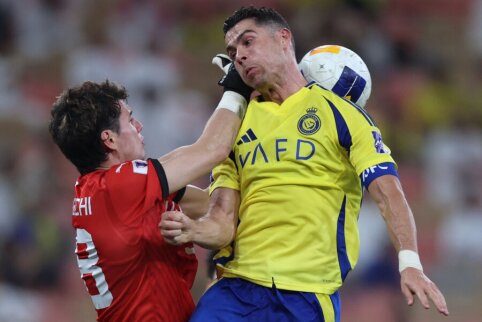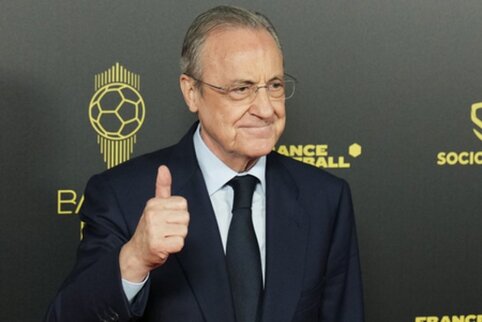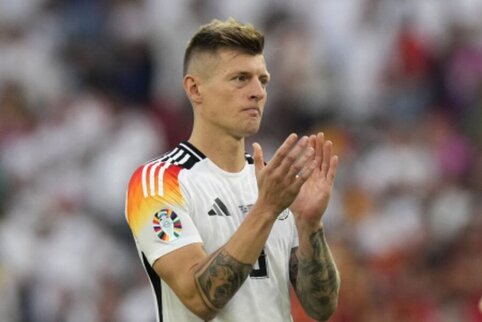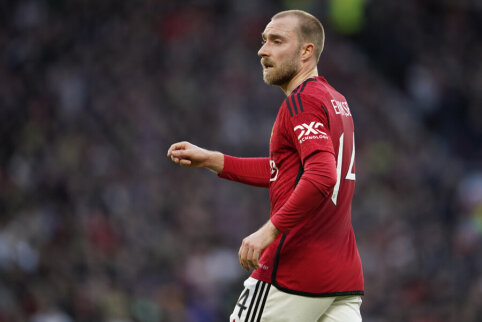 © EuroFootball.com
© EuroFootball.com
Over the last decade, fans have gotten used to France being a constant favorite in any tournament, whether it's the World Cup, European Championship, or Confederations Cup.
History
The difference of the French national team from other teams, which consistently lose in crucial moments, is that France occasionally wins something. Although the first major success for France only came in 1984, in the last years of the 20th century, this country's national team became the first in football history to win consecutive World Cups and European Championships.
However, in the 21st century the French started off poorly, finishing last in their group with not even a single goal scored in the 2002 World Cup. Such performance is not fitting for the current World and European champions. But they played, making some doubt those who considered the French the best team of today. Even though Zinedine Zidane's absence due to injury in the first two matches and his loss after being sent off in the match against Uruguay can partly justify the disaster in Korea, the team, led by Jacques Santini, can only wash away the shame with a triumph in Portugal. Especially considering they have all the conditions. The new stars of the team - Henry and Trezeguet - are very successful in their clubs, and France hasn't lost a single point in the qualifying matches. And Zidane is not yet too old.
Although France can be considered one of the founders of the World Cup and the first goal in tournaments was scored by a Frenchman - Lucien Laurent, a really strong attacking team was only formed in the sixth decade of the last century. The team that featured the incomparable Raymond Kopa and Just Fontaine shone in the 1958 World Cup. And although the French then lost 2-5 to Brazil in the semi-final (seventeen-year-old Pele scored a hat-trick), Fontaine himself entered football history as the author of 13 goals in a World Cup. It is believed that this record will never be beaten, unless in the future there will be 150 teams participating in the final tournament. Even Ronaldo's achievement two years ago, when he scored 8 goals, is considered an exceptional result.
On the European stage, France did not have success until 1984, when the continental championship final took place in Paris. A fourth place in 1960, when Kopa and Fontaine were no longer the same, can hardly be considered a successful performance, especially considering that the French played at home. In the final tournament, won by the Soviet Union national team, the hosts lost 4-5 to Yugoslavia in the semi-finals (although leading 4-2 during the match), and in the match for third place, they were defeated by Czechoslovakia. After that, the French team twice lost in the quarter-finals - in 1964 to Hungary and in 1968 to Yugoslavia. After this loss, years of decline in French football began.
Three times France failed to qualify for the European Championship, and their results at the World Cup level were similar: at best they could not advance from the group stage, as in 1978.
At the beginning of the eighties, a generation of footballers grew up in France who were not inferior to their famous elders. Zidane, Platini, Battiston, Tigana, Battiston, Tresor - these players dictated the trends of European football 20 years ago. Initially, the French national team, led by Michel Hidalgo, shone at the 1982 World Cup in Spain, when they only missed the final after losing to Germany in a penalty shoot-out. These matches are still considered some of the best in World Cup history: Harald Schumacher almost killed Patrick Battiston, the Germans scored two goals in extra time, and Maxime Bossis was devastated when he missed the decisive penalty.
Two years later, the French took revenge. Not against the Germans, but against all of Europe, who had considered France a second-rate football power for a long time. In the group stage matches, the French defeated Denmark, which at the time played amazing football. Michel Platini, who scored nine goals in these championships, scored his first and only goal of the tournament. Later, Platini sent three goals against Belgium and Yugoslavia, and the French reached the semi-finals from the first place in the group.
The future champions faced the Portuguese. The hero of the match was defender Philippe Demerges, who scored twice. In the first half, he led his team forward with a penalty kick, and at the end of the match, he saved his team's honor by equalizing the score and taking the decision of the match to extra time. The excellent French team of the mid-80s played such an attacking football that conceding 2-3 goals was not surprising. And the Portuguese, not content with just bronze medals, set out to defeat the hosts by scoring two goals in the second half.
In the last minute of extra time, when all of France anxiously waited for a penalty shootout, Platini still had the last word. Receiving the ball from Tigana, he craftily evaded the entire Portuguese defense with movements close to ballet and sent the ball just below the crossbar. The final was marked by a typical Platini goal that was not "dry" in any game of the championship: Spanish goalkeeper Luis Arconada failed to save the penalty shot by Platini. And just a minute before Arconada's goal, Bruno Bellone ran to secure the final result, and the French became European champions for the first time.
The next World Cup became the sunset of the Platini era, although the French team performed well, finishing third, and until 1998, it was the highest result in French football history. In Mexico, the French national team played on equal terms with the Soviet team in the group matches, later defeated the Italians, beat the Brazilians, and only met the Germans in the semi-finals, whom they once again failed to overcome.
In the matches for the third place, the French fielded their second team but still won. In the 1988 European Championship qualifiers, the French stumbled, losing not only to the Soviet Union and East Germany but also to Iceland! They missed out on the 1990 championship. In 1992, Platini was called upon again to save the team, this time as a coach. But in Sweden, the French, who still suffered from generational change (Papin, Cantona, and a young Deschamps failed to lead the team), faced disappointment: they did not advance from the group, losing to Denmark, who later surprisingly won the tournament.
In the 1994 World Cup qualifiers, France shocked the football world when, already having one foot in America, at the end of the qualifying competition, they managed to lose at home to Israel and Bulgaria.
In 1996, France finally managed to rely on a new generation of champions. The team now featured Desailly, Blanc, Lama, Zidane, and Djorkaeff. However, for complete success, they still needed to strengthen. In England, the French showed a decent defense, but their offense was not strong, especially with Zidane not in top form. France made it to the semi-finals, where after a penalty shootout, they lost to the Czech Republic. After coach Gerard Houllier was replaced by Aime Jacquet, the French, using their home advantage and excellent performance by Zidane, who scored two goals in the final, became champions for the first time in 1998.
In 2000, at the European Championship, led by Roger Lemerre, France repeated this achievement at the continental level, although not as impressively. After easily defeating the then weak Danes in the group stage, the French faced resistance from the Czech Republic: it was only in the second half of extra time that Youri Djorkaeff scored the winning goal. And then the French faced the Dutch with their second team, lost, and in the quarter-finals they faced Spain. They also had difficulties with them: if Raul had converted a penalty in the last minute of the match, who knows how it would have ended. And now - a semi-final against Portugal and a decisive penalty kick in extra time, when the sideline referee noticed Abel Xavier's handball and Zidane's winning shot from the "spot."
The 2000 European Championship final was really tense. Like in 1996, when everything was decided by Oliver Bierhoff's "golden" goal, the champion was decided in extra time, where the hero was David Trezeguet. The Italians showed great football in the final, scoring a goal in the second half of the game and could have scored more. However, unlike in previous championships when France only had excellent defenders and safe lines, and clearly lacked sharpshooters (their work was done by the full-back Thuram), in Belgium and the Netherlands, they now had them: Henry, Trezeguet, Wiltord. The first scored goals in earlier stages, while the latter two distinguished themselves in the final. Wiltord equalized in the 90th minute, and Trezeguet ended the championship in the 103rd minute.
In 2004, the French national team, led by Jacques Santini, seemed even stronger. All the team's stars remained, and new ones emerged. In defense, Santini still relied on Thuram, Desailly, and Lizarazu, with Makelele in the midfield, along with Zidane, Vieira, and Pires. Places in attack were practically guaranteed for Trezeguet and Henry, who had once again become a champion with Arsenal. Considering that France did not lose any points in the qualifiers, any Euro 2004 prediction cannot ignore France. The most important thing is to avoid the mistake of the 2002 World Cup and, above all, to avoid essential player injuries.
Star
French national team player Thierry Henry is having one of the best seasons of his career. It is possible that this footballer will become one of the stars of the European Championship.
Currently, the Frenchman is one of the "untouchables" of Arsenal in London. No matter the absurd sums offered for him by Madrid and Roman Abramovich, a miracle must happen for Arsenal to let go of this player. And something extraordinary must happen for the national team to do without this striker.
Thierry Henry was discovered by a well-known scout Arnold Catalano. He himself likes to tell this story: "When I once came to watch him play, I was simply amazed. The thirteen-year-old curly-headed boy was working perfectly with the ball, but most importantly, he wanted to score goals, even when the outcome of the match was already clear. During the game, I stood next to the field with Thierry's father, and the idea in my mind grew stronger that this boy needed to be brought into the team. Even though in that match Thierry scored the lion's share of the goals in a 6-0 victory, I already understood that he would score many more playing for Monaco. After Catalano noticed Henry, he moved to Monaco, where all the French national teams gather - from the senior national team to the youngest. Soon after, Henry moved to the Versailles club.
In his youth, Thierry had a signature move: receive the ball on the left wing, move to the center, dribbling past opponents along the way, and strike the ball into the net with a right-footed shot. In the youth team, he scored goals with the same ease as he does now. Henry often had to play against much older boys, but that only helped him toughen up. According to Thierry's father, there were memorable encounters in the Ouli district of Paris, where he had to play against boys from neighboring blocks.
At a recent season, based on other players' polls, Thierry Henry was recognized as the best player of the season. To the surprise of many, the Frenchman outperformed the best league striker Ruud van Nistelrooy. "Apparently, I have something that no one else has. That's why I won," Henry modestly noted. He took this award very seriously: "This prize means a lot to me, as I was named the best by my colleagues. They know very well my strengths and weaknesses," Thierry said.
He considers his national team as a favorite for the European Championship: "The French national team will compete for the first place. We are strong as ever. We can solve serious problems, even though we have a tough road ahead. But I and my colleagues are ready to go all the way." Henry has always been a maximalist. Perhaps this is exactly what will help France.
Weak Link
For a long time, Fabien Barthez was the leader and symbol of the national team. The flamboyant goalkeeper played perfectly at the 1998 World Cup and became a hero, along with Zidane. At the time, Barthez was considered the best goalkeeper in Europe. However, after six years, Barthez, who is at an optimal age of 32, is now seen more as a clown than a top-class goalkeeper. Despite the lack of replacements for him in the national team: Rame, Coupet, and Landreau await their chance eagerly, but they are relatively inexperienced at that level. The French sometimes regret that they let Bernard Lama retire early. The goalkeeper himself is not without fault, but he is no less reliable than Barthez.
Barthez plays even more or less decently for the national team. He saves more often than he concedes silly goals. But in recent years, things have not gone well for him at the club level. After a lengthy period at Monaco, moving to Manchester United, Barthez acquired a clownish reputation. All of England either cried or laughed after the usual mistakes of the French goalkeeper, when for some reason he runs out of the penalty area or loses control of the ball and gifts it to the opponent's forward. Sometimes it seemed that the not-so-tall player (1.83 cm) did not know how to play away from the goal.
The patience of the leadership of the Manchester club ran out at the beginning of this season, and an American, Tim Howard, was bought to strengthen the goalkeeper position. Barthez lost his playing practice, and such a situation did not suit him. In winter, he moved to Marseille, where he also did not shine. Although he plays in the main lineup.
The French, hearing about Barthez's troubles in the English Championship, have long awaited a change in the national team's goalkeeper. However, for now, he has not disappointed, although everyone noticed that he does not play as reliably as he did 5-6 years ago. Some say that Fabien made a big mistake by going to England, where goalkeepers face special demands. Playing away from the goal more often in Manchester, he had to learn. After all, for the national team, he usually plays without errors. It is easy to guess that his performances for the national team are of great importance to him. After all, the country always holds them close to the heart, waiting for the next Barthez mistake.
So far, everything has passed without a trace. But a new challenge lies ahead.
Hope
After the fiasco of the 2002 World Cup, France has high hopes for the upcoming European Championship. To win it, they must perform well in attack.
Let's go back to 2002. France, the current World and European champion, aimed to win a third consecutive major tournament and set the "eternal record." It seemed like everything was going in the right direction for Les Bleus - the new attacking duo of Henry and Trezeguet were in top form, as always, Zidane was irreplaceable.
However, tragedy struck. Just before the start of the championship, in friendly matches against the Korean team, Zidane was injured. Everyone was waiting for the team leader to recover until the last moment, but he did not get better. Zizou recovered only in time for the third group match, although, naturally, he could not regain his form. In the second group match, the only one the French didn't lose, Henry earned a disqualification. And in the match against Denmark, when France's hopes of advancing from the group were melting away, he was no longer able to participate.
Zidane took part, but it didn't save France. Everything was lost in the matches against Senegal and Uruguay. Defeat to the Danes was expected: without a fit Zidane and with Henry unavailable, the French could not play decently. Recall the 1998 World Cup quarterfinals. Without the suspended Zidane, the future champions only won against the Paraguayans in the penalty shoot-out.
If Zidane, Henry, and Trezeguet are fit, France will likely compete for the top spots. Yes, other favorites also have star-studded attacking lines, but the mentioned trio, unlike the stars of other teams, have already won the European Championship. This can be called a guarantee of quality. Zidane scored winning goals in 1998, Trezeguet in 2000. France believes that if someone from this trio loses form due to injury, repeating the triumph of four years ago can be forgotten. Even if players like Wiltord, Giuly, or Saha sit on the bench. They are not of the same level.
It is no secret that the tragedy in Korea is related to the lack of attack. The current World Cup champions failed for the first time in history to score a goal in a group stage tournament. And all of this due to Zidane's injury and Henry's disqualification.
